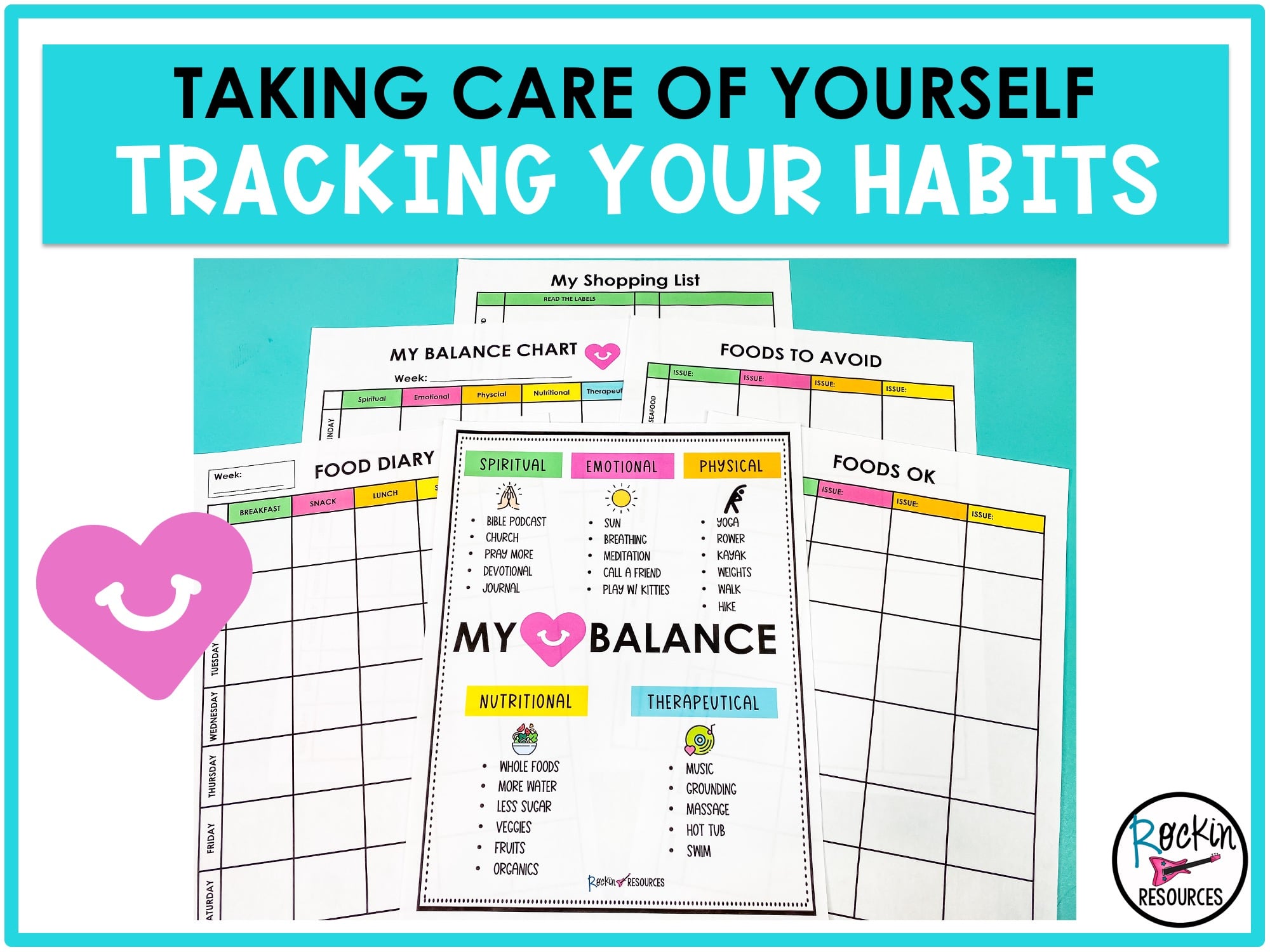It is no secret that you (teachers) are in one of the most caring professions in the world. Each day, you try to educate, encourage, and care for dozens of children who you often come to love like your own. In speaking to a teacher friend with 29 years in the classroom, she told me about she always puts the kids first. I know firsthand that this is true. She taught my son many years ago and had so much compassion for her students. It was evident through her daily actions.
Unfortunately, many of you are exactly like her. You have a habit of caring for others to the exclusion of yourself. This generosity is taking a toll on your health and that can sometimes carry into the classroom. If you want to be the best for the kids you care about, you need to take care of yourself, too! Find a balance!
Stress is literally a killer. There are numerous studies to support the link between chronic stress and illnesses in many forms. According to one study housed in the U.S. National Library of Medicine, stress suppresses natural-killer cells which kill tumor and abnormal cells. Stress leads to everything from ulcers and headaches, to depression, changes in immunity, and the way that our bodies fight cancer. I was like my friend in the classroom. I thought about every student in my classroom all year long and wanted the very best for them. One year, I was overwhelmed. I was stressed over some administrative decisions that wasn’t best for my students. I had a few parents who were quite difficult. I also had some personal hardships in my family. I didn’t take care of myself or find a healthy balance. Unfortunately, I developed cancer that year and had a panic attack in my classroom. It wasn’t my best year, but it was eye-opening. I knew I needed to take care of myself.
Sadly, in our fast-paced world, many people don’t even realize how overtaxed their adrenaline system is. Our fight-or-flight response used to be reserved only for truly dire emergencies. Now, it gets kicked into high gear when the state testing booklets come out or when we’re late to a staff meeting. Sometimes, we are not even aware of how stressed our bodies are. We need to check-in with ourselves at least as often as we check-in with students throughout the day.
Here are some self-care tips to support you as you care for others.
TAKE FIVE MINUTES…
Take five minutes at least once a day to sit down in a quiet space (you may have to lock yourself in the car alone or wait until your own kids are asleep!) and take stock of your body. Are your shoulders still tight from a third period verbal scuffle? Did you even realize your toes were clenched all this time? The reason for doing a five minute check-in is to recognize that your body is in need of a reset. Banish the stress and let your adrenal glands catch a break!
HOW CAN YOU HELP YOURSELF RELAX AND RESET?
We know that you can’t have a tranquil soak in the tub or a spa trip in five minutes. However, mindfulness activities, deep breathing, or prayer and meditation make great five-minute fixes.
Mindful Activities
What exactly is mindfulness? It means paying attention to what you are doing in the moment. Don’t let the stresses of the day and worries about tomorrow crowd your brain. Spend time being involved with yourself for a few precious moments. You can go high tech with a mindfulness app that gives you an image to focus on or soothing sounds to listen to as you deliberately clear your mind. Get rid of stressful thoughts, even if it means spending five minutes doing nothing but focusing on the sound of rain or visualizing a sunset. Find that one image in your mind that makes you happy. Also find that one saying that makes you happy and say it when you are stressed. Think of your five senses while saying it. For example, “toes in the sand“. Feel your toes in the sand. Smell the ocean air. See the ocean. Taste the salt of the ocean or a cool drink in your hand. Hear the ocean waves crash on shore.
Deep Breathing
You can go low-tech. Deep breathing is a powerful and simple tool to regulate your body. Spend five minutes taking in deep breaths and holding them for several seconds before slowly releasing the air. Doing this actually creates aortic space, allowing your heartbeat to slow down. Your body will perceive this as a sign that it’s allowed to relax. Lowering your heart rate for a few minutes at a time is good for your cardiac health as well. You can even do this with your students! They will benefit too. Rockin Resources offers 60 SEL Breathing Strategy Posters that can help!
Prayer and Meditation
Prayer or meditation that is meaningful and focused can calm the spirit and the body. This is not the kind of “Oh, please tell me they fixed the printer!” kind of prayer (although those have their purpose!). Prayer and meditation have been shown to relieve stress and anxiety by promoting one single stream of thought. Instead of a thousand jumbled bits and pieces in your mind, mediation and dedicated prayer allow you to focus on one thing, giving your brain a much needed break. There are devotionals, journals, or apps that you can turn to if you need help getting started! You can also simply rely on your own thoughts. The Mayo Clinic has seen a correlation between meditation and stress relief, coping abilities, and overall emotional well-being.
In summary, there are thousands of unique ways to give yourself some love. Journal. Draw. Read something purely for fun. Regrettably, in this busy world, many teachers do not prioritize self-care. But if you want to be there for your students, you’re going to need to take care of your biggest classroom asset — YOURSELF! You are the leader! Your kids look up to you! Give yourself five minutes a day. What you give to your class in exchange is well worth it! You got this!
I hope you found some rockin’ ideas!
A list of teacher tips found HERE.
Sources:
https://www.ncbi.nlm.nih.gov/pmc/articles/PMC3341916/The National Center for Biotechnology Information (NCBI) is part of the United States National Library of Medicine (NLM), a branch of the National Institutes of Health (NIH).
https://www.mayoclinic.org/tests-procedures/meditation/in-depth/meditation/art-20045858
https://www.ncbi.nlm.nih.gov/pmc/articles/PMC5709795/












